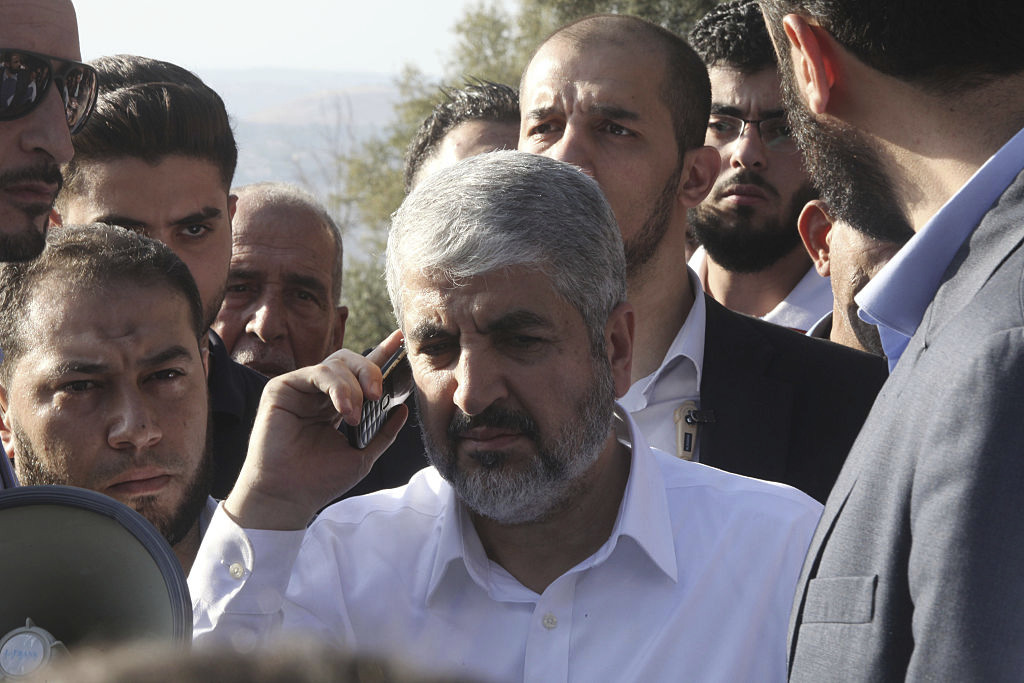- [O]ne of the key fronts in this war is not in the Middle East. It's in the United States.
- [T]he political battle over the war in Gaza has been going pretty much the way the terrorists wanted it to. That's reflected in Mashaal's confidence, as well as Hamas's negotiating tactics and its strategy in Gaza. After Oct. 7, the terrorists have been doing nothing but playing for time. And they expected that the time they needed to outlast the Israeli offensive would be provided to them by Israel's closest ally.
- President Joe Biden's initial response to the Oct. 7 massacre was to join Israeli Prime Minister Benjamin Netanyahu in saying that the only proper response to this atrocious crime was for Hamas to be "eliminated." But almost as soon as the words were out of his mouth, Biden began to slowly back away from that position.
- Over the next several months, as Israel's counter-offensive into Gaza began, the United States played a double game. On the one hand, Washington continued to supply Jerusalem with munitions badly needed by the IDF. Eventually, however, it was reported that the Pentagon slow-walked its delivery to maintain leverage over the Israelis.
- While the public pressure on Israel was bad, even worse was the duress the administration was employing against Netanyahu behind the scenes as it sought to delay every Israeli effort at finishing off the terrorists.
- Administration officials were soon parroting the defeatist line about Hamas being an "idea" that could not be defeated, rather than a terrorist force that could be eliminated. Plenty of "ideas" have been militarily defeated, such as Nazism, which didn't survive the defeat of Adolf Hitler's genocidal regime. But to Americans and Israeli liberals, Hamas is regarded as an eternal force. By adopting this position, the opportunity to convince Palestinians to give up their fantasies about Israel's elimination was thrown away and their century-long war on Zionism prolonged.
- As Mashaal told the Times, Hamas viewed all of this as encouragement for its plan to simply... hold out until U.S. and international pressure — heightened by the anti-Israel bias of the mainstream media — forced Israel to stand down and allow the Islamists to emerge as the victor in the war.
- The families of the remaining hostages and Netanyahu's political opposition now seek to pressure him to give up the war and sign a ceasefire agreement, even if it means essentially handing Gaza back to Hamas and ensuring a repeat of the horrors of Oct. 7.... Hamas is counting on that sentiment.
- But above all, Hamas views American pressure on Israel as its ace in the hole. As Mashaal pointed out, the way that the hostage negotiations have been handled by Washington has amounted to American "recognition" of Hamas as a diplomatic partner as opposed to a despised and outlawed terrorist organization. He is right about that.
- They [Hamas] obviously prefer Harris's stand in favor of an "immediate ceasefire" to former President Donald Trump's comments, which amount to a green light to Israel to "finish the job" of eliminating the terrorists.
- As the Times article makes clear, Hamas will never budge from its demands that Israel hand back Gaza to them... [T]hey will hold onto many of the hostages, despite the belief among some Israelis that it is Netanyahu's stubbornness or political ambition that is the obstacle to their freedom.
- [I]t's easy to understand why the terrorist leader is confident that he can outlast the Israelis ... with American help.

The political battle over the war in Gaza has been going pretty much the way the terrorists wanted it to. That's reflected in the confidence of Khaled Mashaal, head of Hamas's "political wing," as well as Hamas's negotiating tactics and its strategy in Gaza. After Oct. 7, the terrorists have been doing nothing but playing for time. And they expected that the time they needed to outlast the Israeli offensive would be provided to them by the United States, Israel's closest ally. Pictured: Mashaal in Amman, Jordan, on September 4, 2016. (Photo by Jordan Pix/ Getty Images)
After nearly a year of suffering and grievous losses, most Israelis and Palestinian Arabs will likely observe the anniversary of the war started by Hamas on Oct. 7 with sorrow. But not everyone. An interview The New York Times conducted with Khaled Mashaal, the head of Hamas's "political wing," in his luxurious living quarters in Doha, Qatar, revealed he thinks the war has gone just fine.
As the Times put it, Mashaal thinks that Hamas is "winning the war" and is confident that the genocidal Islamist organization will, despite the battering it has received from the Israel Defense Forces, play a "decisive" role in Gaza in the future.
Continue Reading Article


No comments:
Post a Comment